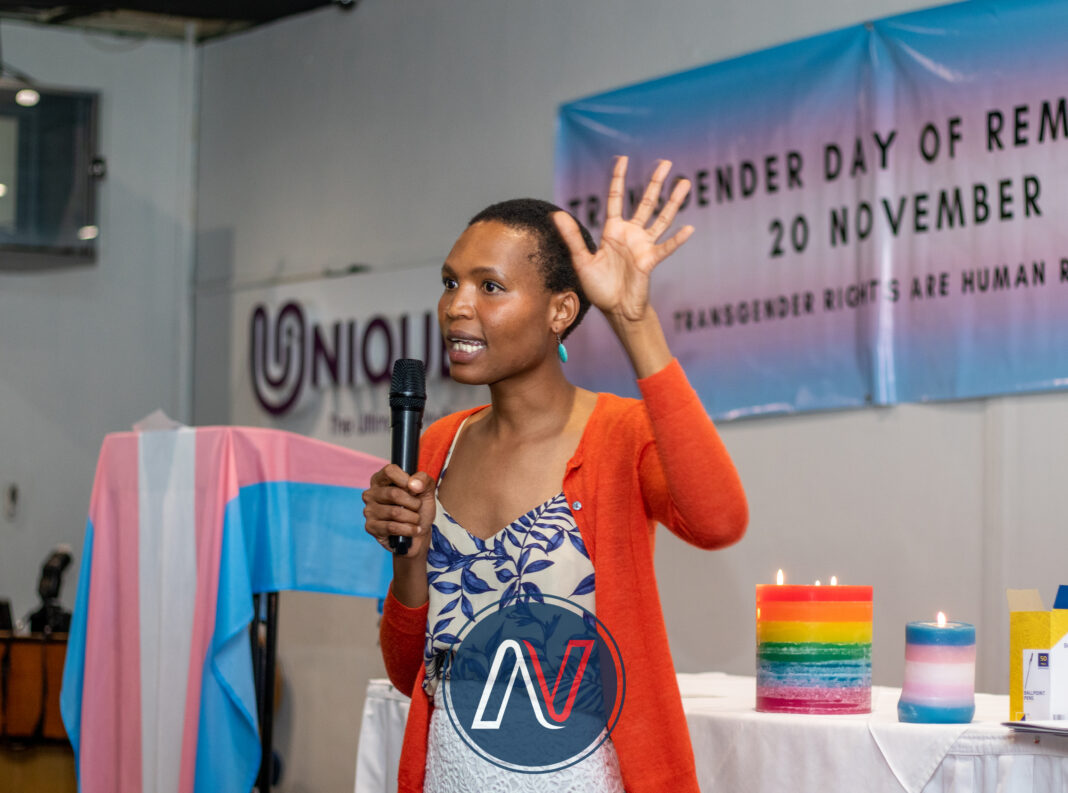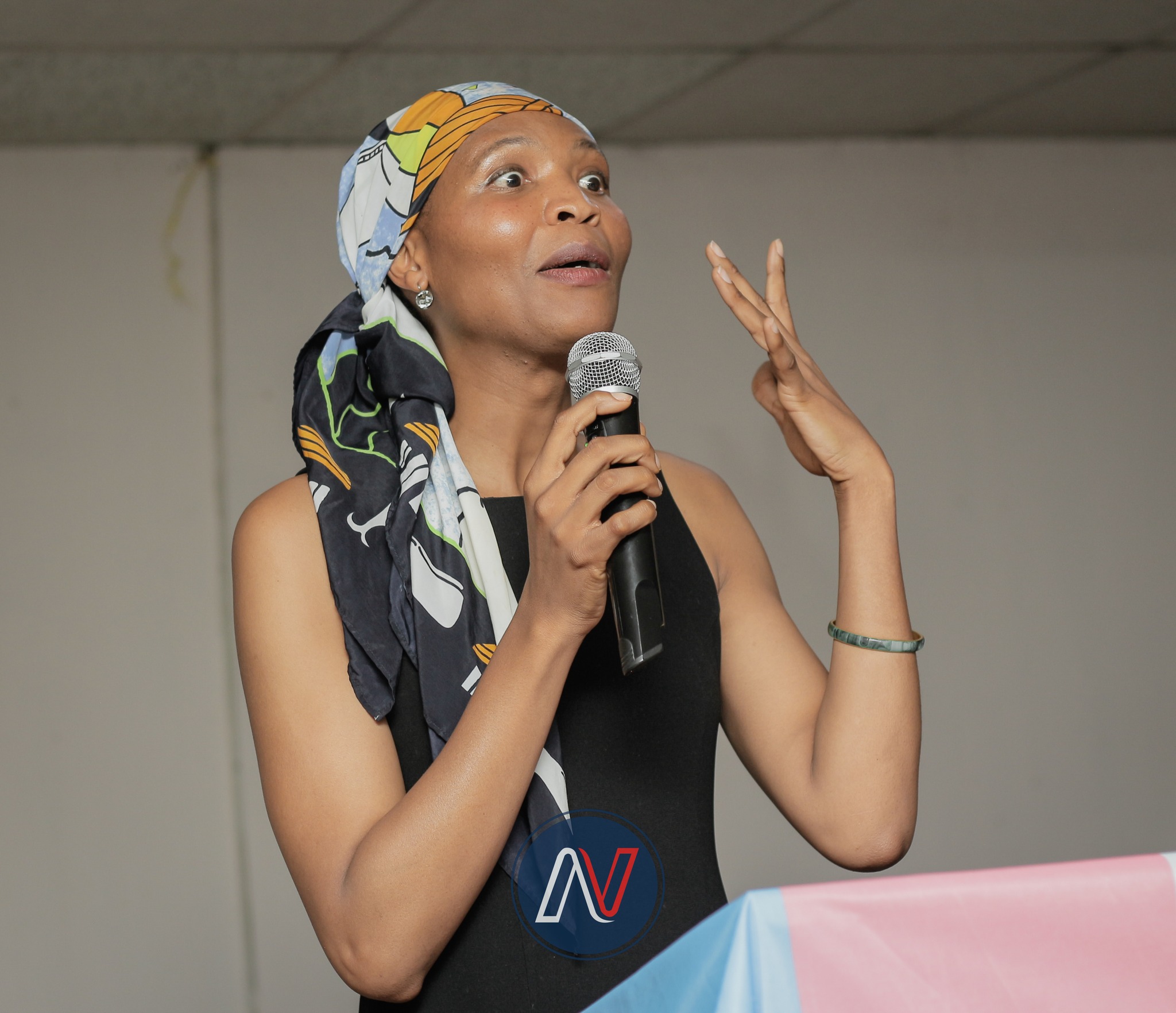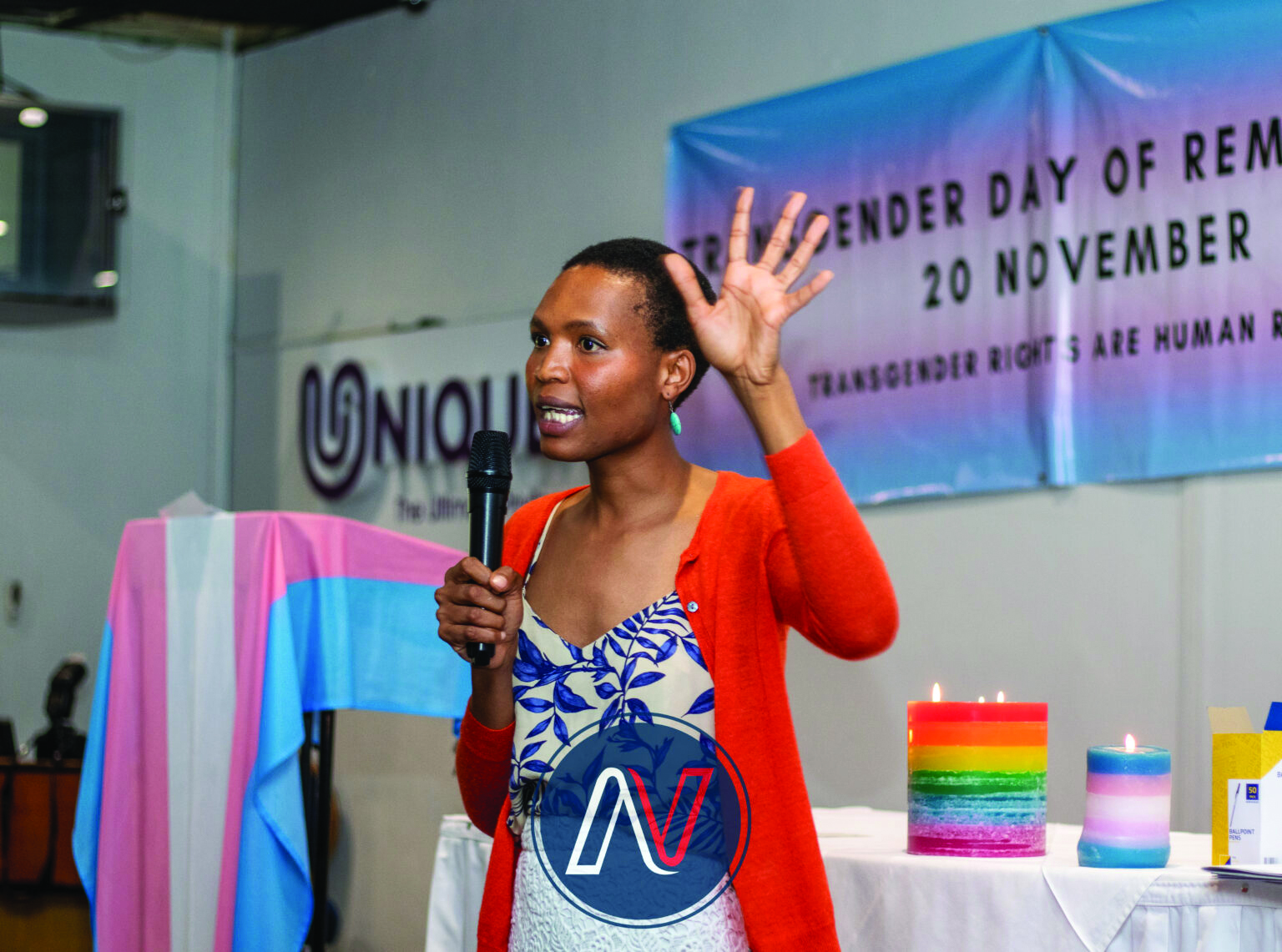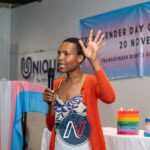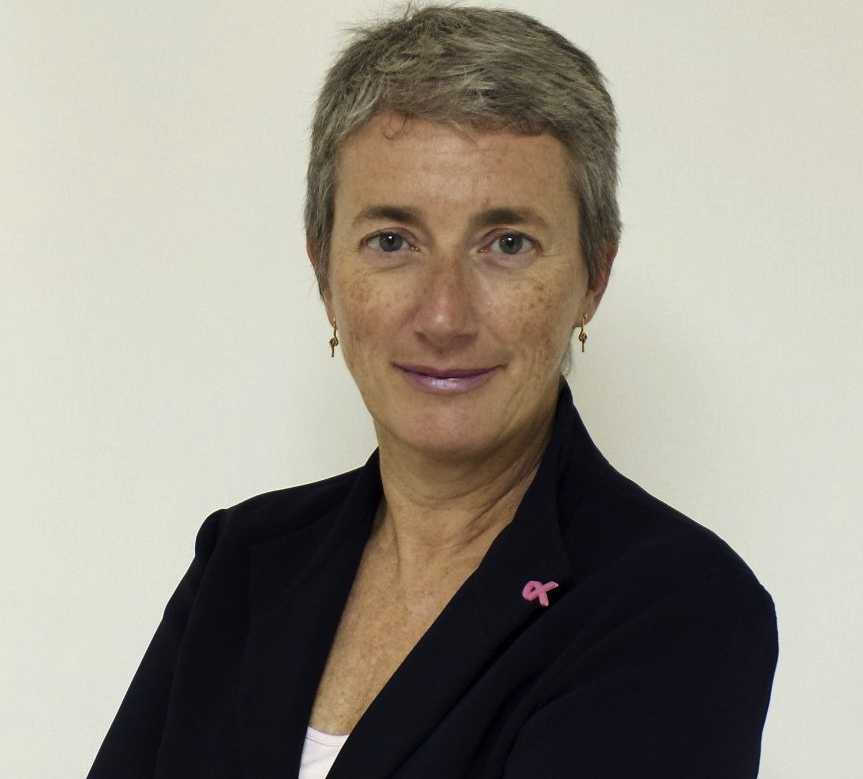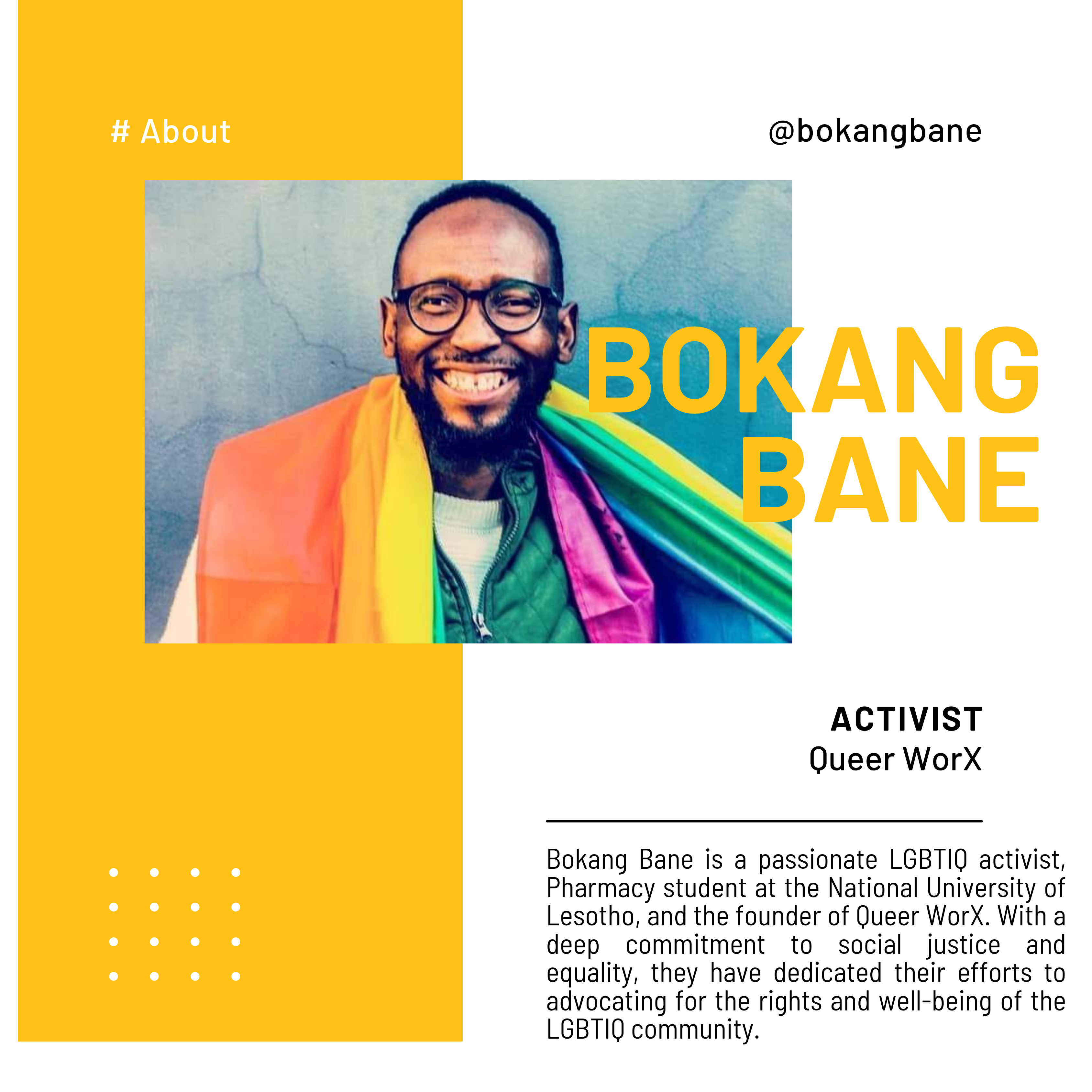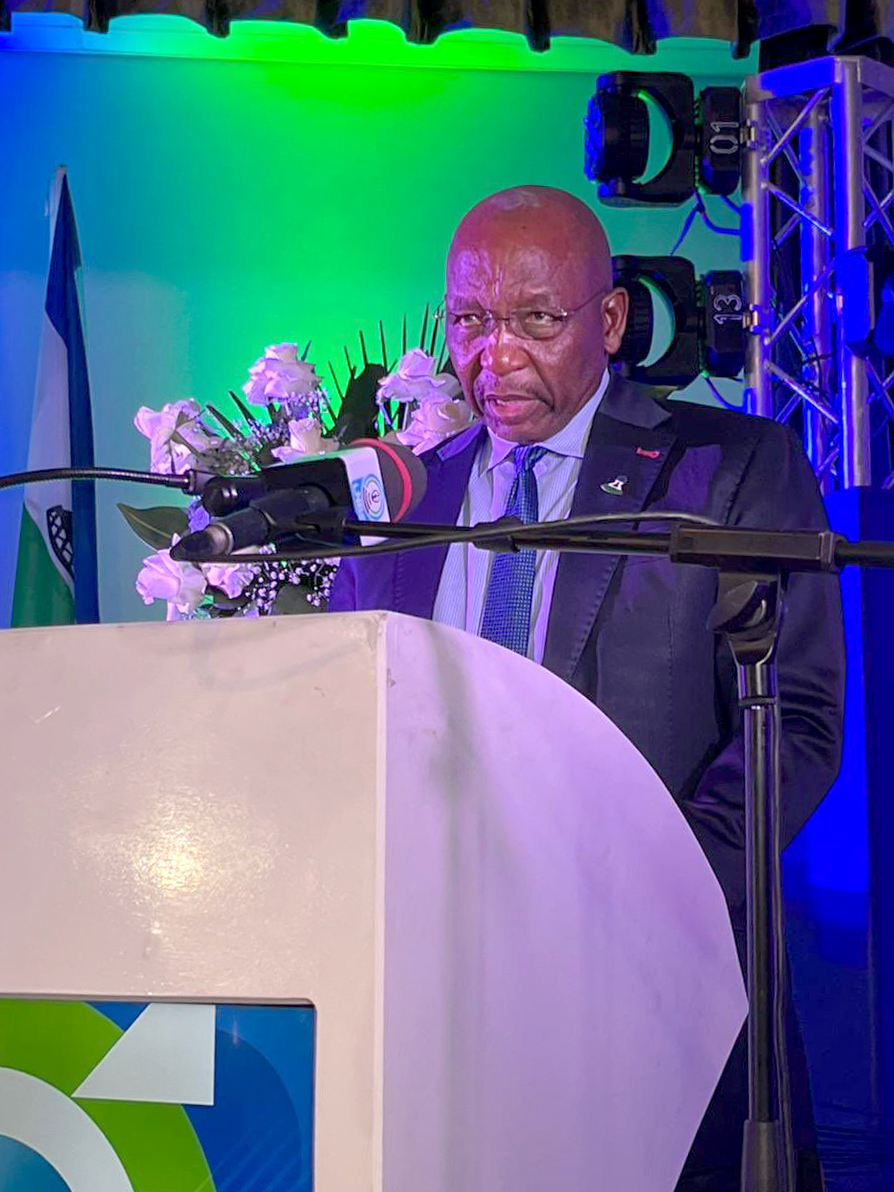Ntsoaki Motaung
In a powerful gathering to commemorate the Transgender Day of Remembrance in Maseru recently, members of Lesotho’s diverse Lesbian, Gay, Bisexual, Transgender, Queer, Intersex, Asexual (LGBTQIA+) community rallied for more than remembrance – they demanded justice and equality in healthcare access.
Among the passionate attendees, voices rose in unison to address a fundamental issue: the dire absence of gender-affirming hormones for transgender individuals within the country’s public healthcare system.
It was during this commemoration that the group took a bold step, resolving to pen a poignant letter to Prime Minister Ntsokoane Samuel Matekane, urgently highlighting the glaring concern.
Giselle Ratalane, the Project Coordinator at the People’s Matrix Association, delivered a stirring address, underscoring the pivotal role hormones play in a transgender person’s quality of life.
Ratalane said the significance of hormones cannot be overstated indicating that they are an essential element for transgender individuals seeking to align their appearance with their identity.
Hormones provide a lifeline, enabling transgender individuals to authentically manifest their identity, profoundly impacting their well-being, according to Ratalane.
Emphasising the nuanced nature of this crucial need, Ratalane acknowledged that not all transgender individuals seek hormone therapy.
“This isn’t a blanket requirement for everyone, but for those who aspire to access these medications, it is imperative that they are legally available,” Ratalane asserted.
“Decisions concerning healthcare directly shape lives, and ensuring legal access to gender-affirming hormones is a matter of dignity and respect,” Ratalane added.
Expanding on the fervent appeal for gender-affirming hormones, Ratalane, emphasised that these medications should be free. “Presently, these vital medications are only accessible at private hospitals, imposing exorbitant charges that render them unaffordable for many within our community,” Ratalane stated.
Highlighting the stark disparity in healthcare accessibility, Ratalane pointed out the systemic barriers that still exclude transgender individuals from adequate health services.
Ratalane proposed the establishment of dedicated hospital wards for transgender individuals.
“Transgender individuals often feel uncomfortable in general wards, and the discomfort is mutual. Creating specialized wards fosters a conducive environment where both transgender individuals and other patients feel at ease,” Ratalane explained.
Drawing parallels to existing healthcare accommodations, Ratalane urged for the creation of LGBTQIA+ corners within hospitals, similar to adolescent corners, where members of the community could access healthcare services without prejudice or discomfort.
Moreover, Ratalane stressed the urgency of training healthcare professionals in catering to the specific needs of the LGBTQIA+ community.
In a resounding call for societal acceptance and equality, Ratalane emphasised the community’s desire for legal recognition, advocating for the allowance of same-sex marriage and adoption rights.
“Granting us the right to marry and adopt children will pave the way for us to create families, just like any other citizen,” Ratalane articulated.
In a September report, the United Nations (UN) Human Rights Committee expressed concern regarding discrimination based on gender, sexual orientation, disability, and age in Lesotho.
Specifically, the Committee noted its regret over the absence of explicit repeal of the provision in the Sexual Offences Act, 2003, which criminalizes sodomy.
The Committee’s recommendations urged Lesotho to address stigmatisation and discrimination across various demographics, including sexual orientation, gender identity, disability, elderly women, sex workers, and individuals living with HIV.
To tackle these issues, the Committee emphasised the need for heightened awareness campaigns and investigations into discriminatory acts and violence.
Additionally, the report emphasized the importance of bringing perpetrators to justice and providing victims with appropriate redress.
It read: “Repeal the provision on sodomy from the Sexual Offences Act, 2003.”
Speaking at the gathering to commemorate the Transgender Day of Remembrance Lineo Tsikoane, from UN Lesotho, delivered a thought-provoking address, urging for a profound shift in how society views and addresses transgender issues.
In a stirring call to action, Tsikoane emphasised the urgent need to humanise the experiences of transgender individuals and address critical aspects often overlooked.
“Transgender individuals are part of our human fabric, and it is high time we started acknowledging and discussing key issues that impact their lives,” she said.
She challenged the audience to consider crucial life phases and healthcare concerns faced by transgender individuals, urging for conversations that delve into their human experiences.
Provoking deep reflection, Tsikoane queried the audience about the overlooked realities faced by transgender individuals, especially during menopause.
“Have we considered the unique experiences of menopause in a transgender person? And who will extend care and support to transgender individuals in their elderly years?” she asked, emphasising the importance of inclusive discussions about all stages of life.
Championing the need for elevating advocacy, Tsikoane urged for a renewed focus on humanizing transgender experiences.
“Let us humanise ourselves again by discussing the often-overlooked realities, such as the challenges faced by transgender individuals dealing with menstruation or potentially suffering from ovarian or breast cancer,” she urged.
Moreover, Tsikoane shed light on the limitations in accessing hormone treatment due to existing healthcare structures. She stressed the urgency of acknowledging trans rights as basic human rights by acknowledging their humanity in healthcare systems.
In a powerful call for societal transformation, Tsikoane emphasised the need to reaffirm the human essence of transgender individuals.
“To assert trans rights as human rights, we must first recognise and affirm their humanity by addressing these pressing concerns,” she said.
Tampose Mothopeng, the president of the People’s Matrix Association, shed light on the longstanding adversities faced by transgender individuals, emphasising the need for societal inclusion and legal recognition of gender identities in Lesotho.
In a poignant address, Mothopeng acknowledged the painful history of discrimination and violence endured by transgender individuals, citing instances of societal prejudice and the tragic loss of lives.
“Throughout history, transgender individuals have borne the weight of discrimination and violence, challenging societal norms and facing stigma and prejudice,” he stated.
Marking November 20 as a day of global remembrance and advocacy for transgender rights, he highlighted the ongoing struggles of the transgender community in Lesotho.
“On this significant day, we recognize the persistent hardships faced by transgender individuals in Lesotho and stress the imperative of fostering an inclusive and accepting society,” affirmed.
Drawing attention to critical research findings, Mothopeng emphasised the pivotal role of legal gender recognition in safeguarding the well-being and societal inclusion of transgender individuals.
Citing findings from the ‘Are we doing alright’ Study, he revealed an alarming statistic: “A staggering 36 percent of transgender individuals in Lesotho have faced denial of healthcare, aggravated by their inability to change gender markers.”
He indicated that this distressing reality underscores the urgency for legal reforms.
Further, Mothopeng outlined the pivotal initiative, the Gender Legal Recognition project, as a collaborative effort between the People’s Matrix Association, Women and Law Southern Africa (Lesotho), and the Southern African Litigation Center (SALC).
This project, he explained, aims to address legal framework challenges encountered by transgender and gender non-conforming individuals, offering invaluable insights to drive transformative change.

Your Trusted Source for News and Insights in Lesotho!
At Newsday Media, we are passionate about delivering accurate, timely, and engaging news and multimedia content to our diverse audience. Founded with the vision of revolutionizing the media landscape in Lesotho, we have grown into a leading hybrid media company that blends traditional journalism with innovative digital platforms.


